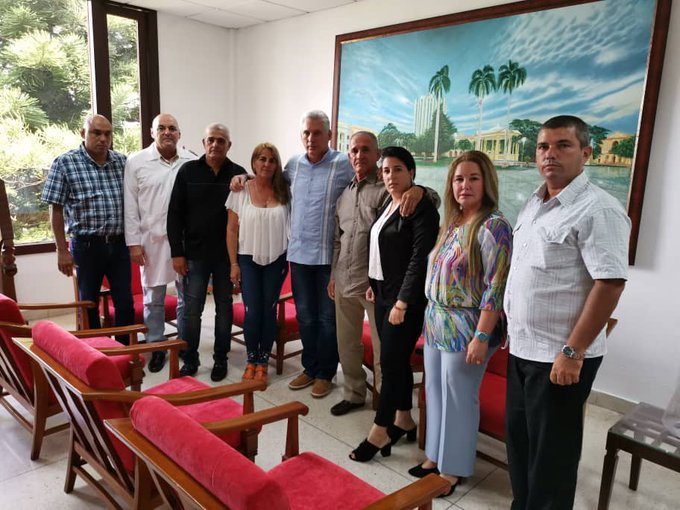Cuban President Miguel Díaz-Canel met with relatives of surgeon Landy Rodríguez, one of the two Cuban doctors kidnapped more than three months ago in northern Kenya, the president confirmed on his Twitter account.
The meeting took place in the city of Santa Clara, capital of the province of Villa Clara, of which Rodríguez is a native.
“In Santa Clara we met and talked with the family of Doctor Landy Rodríguez Hernández. We expressed encouragement and affection in such a difficult situation to them,” Díaz-Canel twitted, referring to the doctor’s family as “hardworking and humble people we should all support.”
En Santa Clara nos encontramos y conversamos con la familia del Doctor Landy Rodríguez Hernåndez. Le expresamos aliento y afecto en tan díficil situación. Familia trabajadora y humilde que todos debemos apoyar. #SomosCuba #SomosContinuidad pic.twitter.com/lM68VlIDpL
— Miguel Díaz-Canel Bermúdez (@DiazCanelB) July 31, 2019
The dialogue took place a week after Díaz-Canel met with the relatives of the general medicine specialist Assel Herrera, the other doctor kidnapped in Kenya and taken along with Rodríguez to Somalia by alleged members of the jihadist group Al-Shabaab.
None of these meetings has led to any news about the situation of the doctors kidnapped on April 12, when they were traveling in an official vehicle to work in the hospital in the Kenyan city of Mandera.
Díaz-Canel said at the end of last June that Cuba maintains a “permanent follow-up” on the case and the authorities of Kenya and Cuba have reiterated that they are still alive and “all possible actions are being carried out for their return,” although to date the kidnappers have not disclosed any evidence about the fate of Rodríguez and Herrera.
The Kenyan government believes that the Somali jihadist group Al-Shabaab is responsible for the kidnapping. This group joined Al Qaeda in 2012 and although it operates in Somalia, it usually raids Kenyan territory to carry out attacks.
The kidnapped doctors are part of a contingent of 100 Cuban professionals who arrived in Kenya last year through a bilateral agreement to improve access to specialized health services in the African nation.
After the incident, Cuba relocated the specialists who worked in the regions bordering with Somalia.










